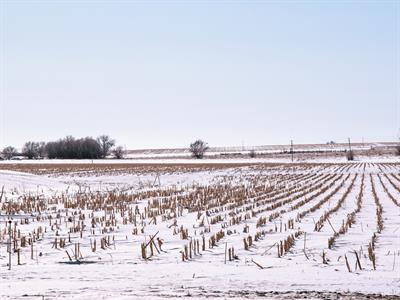PDF chapter test TRY NOW
They, too, aware of sun and air and water,
Are fed by peaceful harvests, by war’s long winter starv’d.
Their hands are ours, and in their lines we read
A labour not different from our own.
Remember they have eyes like ours that wake
Or sleep, and strength that can be won
By love. In every land is common life
That all can recognise and understand.
Are fed by peaceful harvests, by war’s long winter starv’d.
Their hands are ours, and in their lines we read
A labour not different from our own.
Remember they have eyes like ours that wake
Or sleep, and strength that can be won
By love. In every land is common life
That all can recognise and understand.
Explanation:
In the second stanza, the poet paints a picture with his words as to how mother nature has provided resources in abundance. In reality, all the resources that a human being needs are already available. But in the long run, when people became greedy, things started changing for the worse. They wanted extra and started hoarding up. Differences started arising between people, and they fought for more without realising that all they wanted was already present within nature. All individuals are exposed to nature and resources like sun, air and water, and therefore are almost similar. Nature does not discriminate against humans.

Natural resources - sun, air, water
The poet emphasises more on the need to promote equality among human beings by giving instances of how farmers produce a harvest that suffices as food for all the people in the world. When there is a war, countries face scarcity in terms of food production or economy, which the poet compares with the winter season when there is less harvest. He also says that our hands are similar to them, indicating that everyone works hard to sustain life, and therefore everyone's life is equally important and precious. Their labour is not in any way different from each other.

Harvest during winter
Kirkup then says that all human beings are created and seen equally in the eyes of God. The ability to see, hear, touch, taste, and feel are blessings bestowed on each individual. In spite of differences in race, colour and appearances, the physical features and emotions are common. People from across boundaries open their eyes to a new morning every day and close their eyes when they sleep. This indicates that people all over the world have dreams, aspirations, hopes and every day they wake up, they go about pursuing it. The poet also says that people possess strength. But this strength is not the one to be tested with wars, rather it will only be submitted to the power of love. No matter where people are or what culture they practise, love is a universal language. Since all human beings lead the same kind of common lifestyle, it is easy to empathise and understand each other and allow others to live.
Meaning of difficult words:
| S.No | Words | Meaning |
1 | Harvest | The process of getting crops |
2 | Starved | Suffering due to lack of food |
3 | Labour | Physical work |
4 | Abundance | Available in excess |
5 | Scarcity | Available in short supply |
6 | Aspirations | Ambition to achieve something |
7 | Empathise | Understand other people's feelings |
8 | Discriminate | Differentiating people based on a choice |
Reference:
National Council of Educational Research and Training (2006). Beehive. No Men are foreign - James Kirkup (pp.80 -81). Published at the Publication Division by the Secretary, National Council of Educational Research and Training, Sri Aurobindo Marg, New Delhi.
